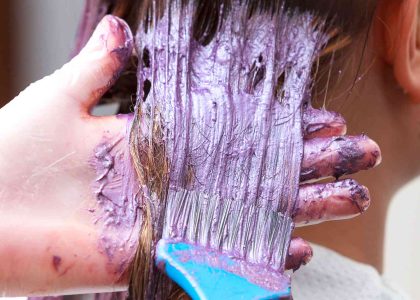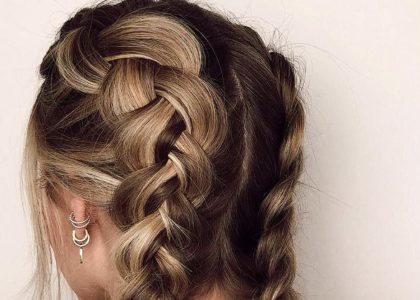How to Prevent Hair Loss from Chemotherapy: Strategies for Managing This Side Effect
Chemotherapy is a powerful treatment for cancer, but it can also come with unpleasant side effects, including hair loss. This can be a significant emotional stressor for many patients. While there’s no guaranteed way to completely prevent hair loss from chemo, there are strategies you can explore with your doctor to minimize its impact.
Understanding Chemotherapy and Hair Loss
Chemotherapy disrupts the natural cycle of hair growth, leading to hair loss. Let’s delve deeper into this process:
-
The Hair Growth Cycle: Hair follicles go through three distinct phases:
- Anagen (Growth Phase): This is the active growth phase, lasting for years. During this time, the hair follicle rapidly produces new hair cells.
- Catagen (Transition Phase): This short phase lasts a few weeks and signals the end of active hair growth.
- Telogen (Resting Phase): The hair follicle rests for several months before the hair is shed and a new growth cycle begins.
-
Chemo’s Impact: Chemotherapy drugs target rapidly dividing cells. Hair follicles are some of the fastest-growing cells in the body, making them vulnerable to chemo’s effects.
- The drugs disrupt the hair growth cycle by damaging the hair follicle’s ability to produce new hair cells.
- This can shorten the anagen phase and push more follicles into the telogen phase, resulting in increased hair shedding and eventual baldness.
Factors Affecting Hair Loss Severity:
- Specific Chemo Drugs: Different chemotherapy drugs have varying effects on hair loss. Some drugs cause complete hair loss, while others may cause thinning or patchy hair loss.
- Dosage and Treatment Schedule: Higher doses and more frequent chemotherapy sessions generally increase the risk of hair loss.
- Individual Differences: People respond differently to chemotherapy. Genetics and overall health can play a role in how much hair someone loses.
Scalp Cooling: A Potential Approach
Scalp cooling is a technique that may help reduce hair loss during chemotherapy. It involves wearing a specially designed cap filled with a cooling agent throughout your treatment session. The cap lowers the scalp’s temperature, which constricts blood vessels and limits the amount of chemo drugs reaching hair follicles.
Studies show scalp cooling can be effective for some patients, particularly those receiving specific types of chemotherapy. However, it’s not always successful, and it can be uncomfortable to wear for extended periods. Discussing scalp cooling with your doctor can help determine if it’s a suitable option for you.
Maintaining a Healthy Scalp Environment
Taking care of your scalp during chemotherapy can help minimize damage and promote future hair growth. Here are some tips:
- Gentle Cleansing: Wash your hair regularly with a gentle, fragrance-free shampoo. Avoid harsh scrubbing or frequent shampooing, which can irritate the scalp.
- Moisturize Regularly: Use a gentle moisturizer on your scalp to keep it hydrated and prevent dryness. This can help reduce itching and discomfort.
- Scalp Massages: Gentle scalp massages can improve blood circulation to the scalp, potentially promoting hair growth.
Important Note: Before using any new products on your scalp, consult your doctor to ensure they won’t interfere with your chemotherapy treatment.
Dietary Strategies for Hair Health
Eating a balanced diet rich in essential nutrients is crucial for overall health, including hair health. During chemotherapy, your body needs even more nutrients to cope with the side effects. Here’s what to focus on:
- Protein: Hair is primarily made of protein, so ensure adequate protein intake from sources like lean meats, fish, eggs, beans, and lentils.
- Iron: Iron deficiency can contribute to hair loss. Include iron-rich foods like red meat, leafy green vegetables, and fortified cereals in your diet.
- Omega-3 Fatty Acids: Omega-3s promote scalp health and hair growth. Eat fatty fish like salmon or tuna, or consider omega-3 supplements.
- Vitamins and Minerals: Consult your doctor about taking a multivitamin specifically formulated for cancer patients. These can ensure you’re getting enough essential vitamins and minerals for hair health.
- Stay Hydrated: Drinking plenty of water keeps your scalp hydrated and promotes overall well-being.
Managing Stress and Hair Loss
Hair loss from chemotherapy can be a significant stressor. The emotional impact can be just as challenging as the physical side effects. Here’s how to manage stress and potentially minimize its role in hair loss:
-
Understanding the Stress-Hair Loss Connection: Chronic stress triggers the release of hormones like cortisol. Cortisol can disrupt the hair growth cycle by shortening the anagen phase (growth phase) and pushing more follicles into the telogen phase (resting phase), leading to increased shedding.
-
Stress Reduction Techniques: By managing stress, you can potentially create a more favorable environment for hair growth. Here are some effective techniques:
- Relaxation Techniques: Regularly practicing relaxation techniques like deep breathing, meditation, or progressive muscle relaxation can significantly reduce stress levels.
- Mindfulness: Mindfulness practices like mindful walking or meditation help you become more aware of your thoughts and feelings without judgment. This can help manage stress in a healthy way.
- Yoga and Exercise: Regular exercise, including yoga, is a powerful stress reliever and promotes overall well-being. Aim for moderate-intensity exercise most days of the week.
- Therapy: Talking to a therapist can equip you with coping mechanisms to manage stress effectively. They can also help address any underlying anxiety or depression related to your cancer diagnosis and hair loss.
-
Building a Strong Support System: Social support is crucial during cancer treatment. Surround yourself with positive and supportive loved ones. Consider joining a cancer support group to connect with others who understand your journey.
-
Prioritizing Sleep: When you’re well-rested, your body is better equipped to manage stress. Aim for 7-8 hours of quality sleep each night. Develop a relaxing bedtime routine to improve sleep hygiene.
-
Self-Care Practices: Taking care of yourself emotionally and physically goes a long way in managing stress. Engage in activities you enjoy, whether it’s reading, spending time in nature, or listening to music.

Remember, hair loss from chemotherapy is temporary. Most patients experience hair regrowth after completing treatment. However, the new hair may be different in texture or color. Talking openly with your doctor about your concerns and exploring these strategies can help you manage hair loss and feel more empowered during your cancer journey.





